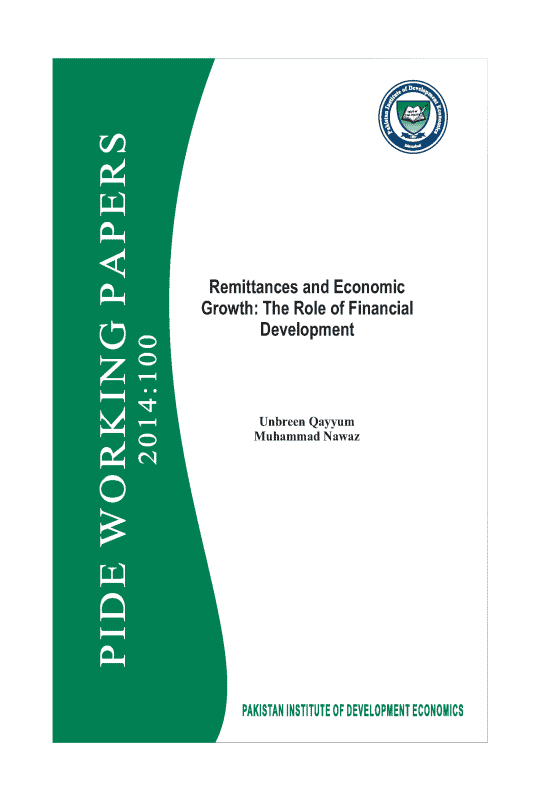Remittances and Economic Growth: The Role of Financial Development
Remittances and financial developments have been an important and overgrowing source in accelerating the growth process of many transitional economies. The economies that have enough source of remittance from their expatriate necessitate the well established technology for financial transactions that ultimately result in economic growth. This paper theoretically extends the Ramsey-Cass-Koopmans model by incorporating the remittances and financial developments that has emerged in financial sector. Theoretical results of steady state indicate that higher amount of migrant remittances along with financial developments increase the consumption level of the domestic residents that results in higher economic growth by inducing more investment. In the long-run, both overseas remittances and financial developments increase the steady-state rate of output growth and capital stock. The findings also highlights that remittance creates the current account surplus and financial developments produce an upward shift in production function that lead to further growth. This research explores the new dimension for policy-maker particularly, working for innovations in the financial sectors.




